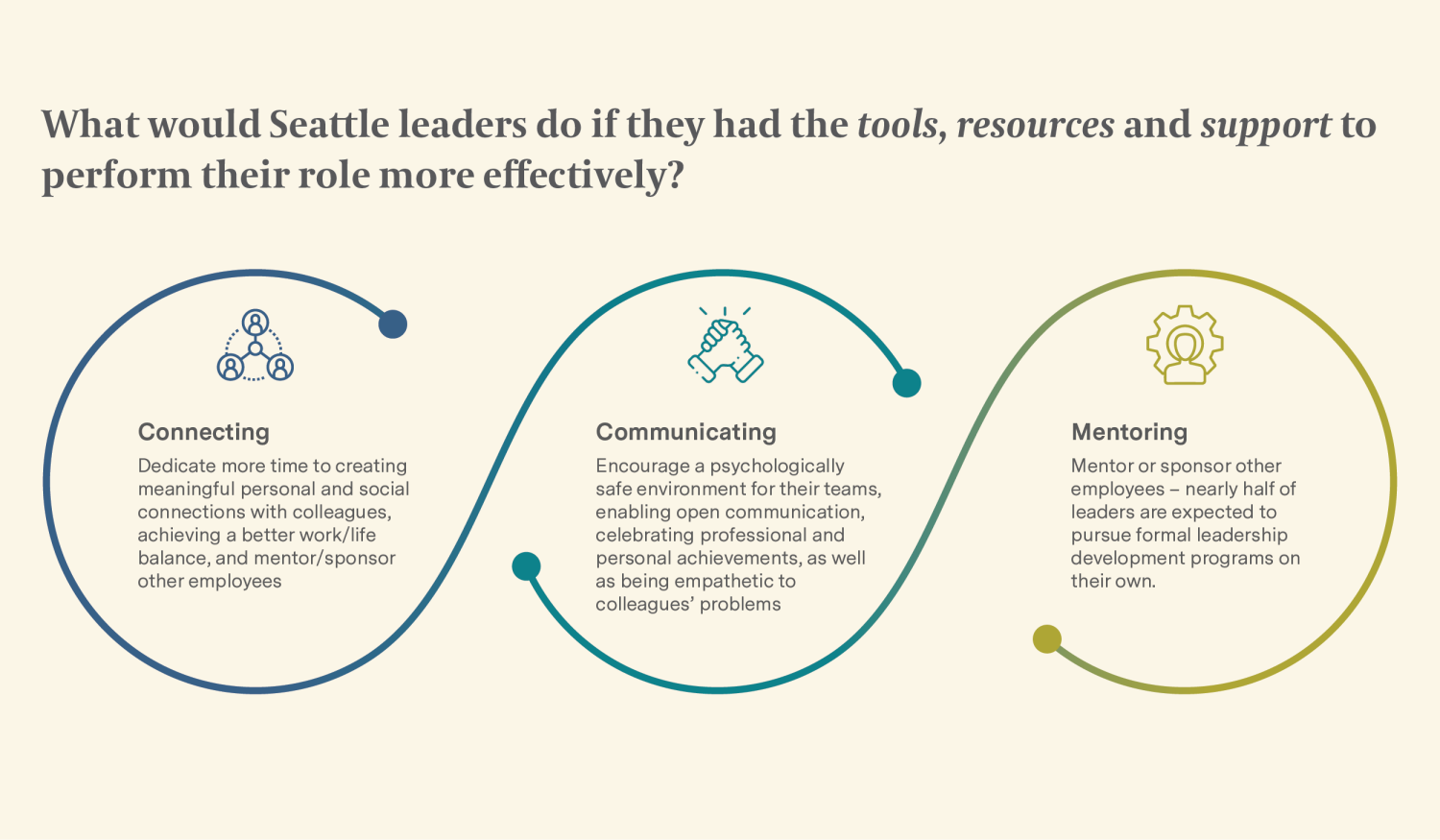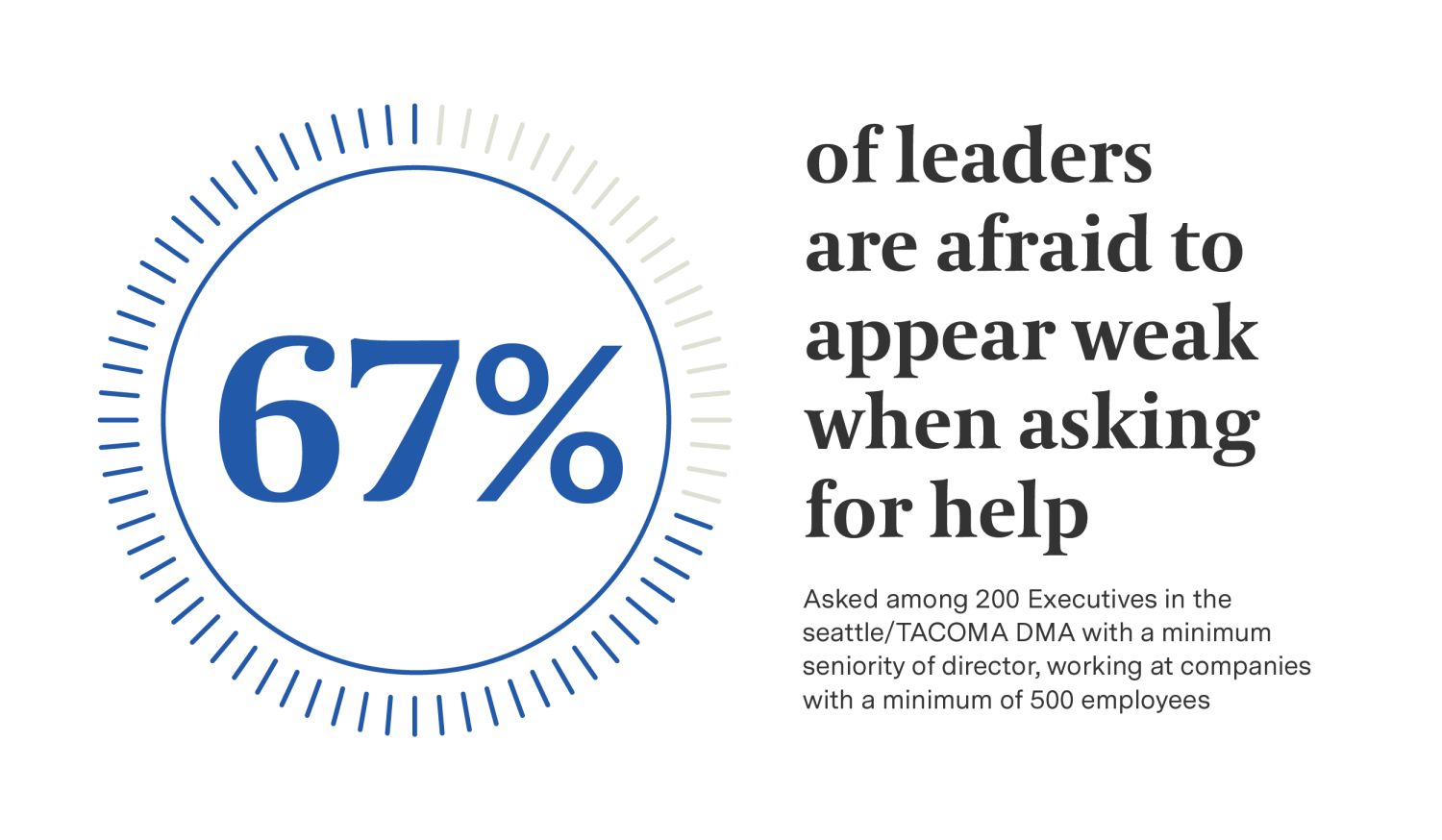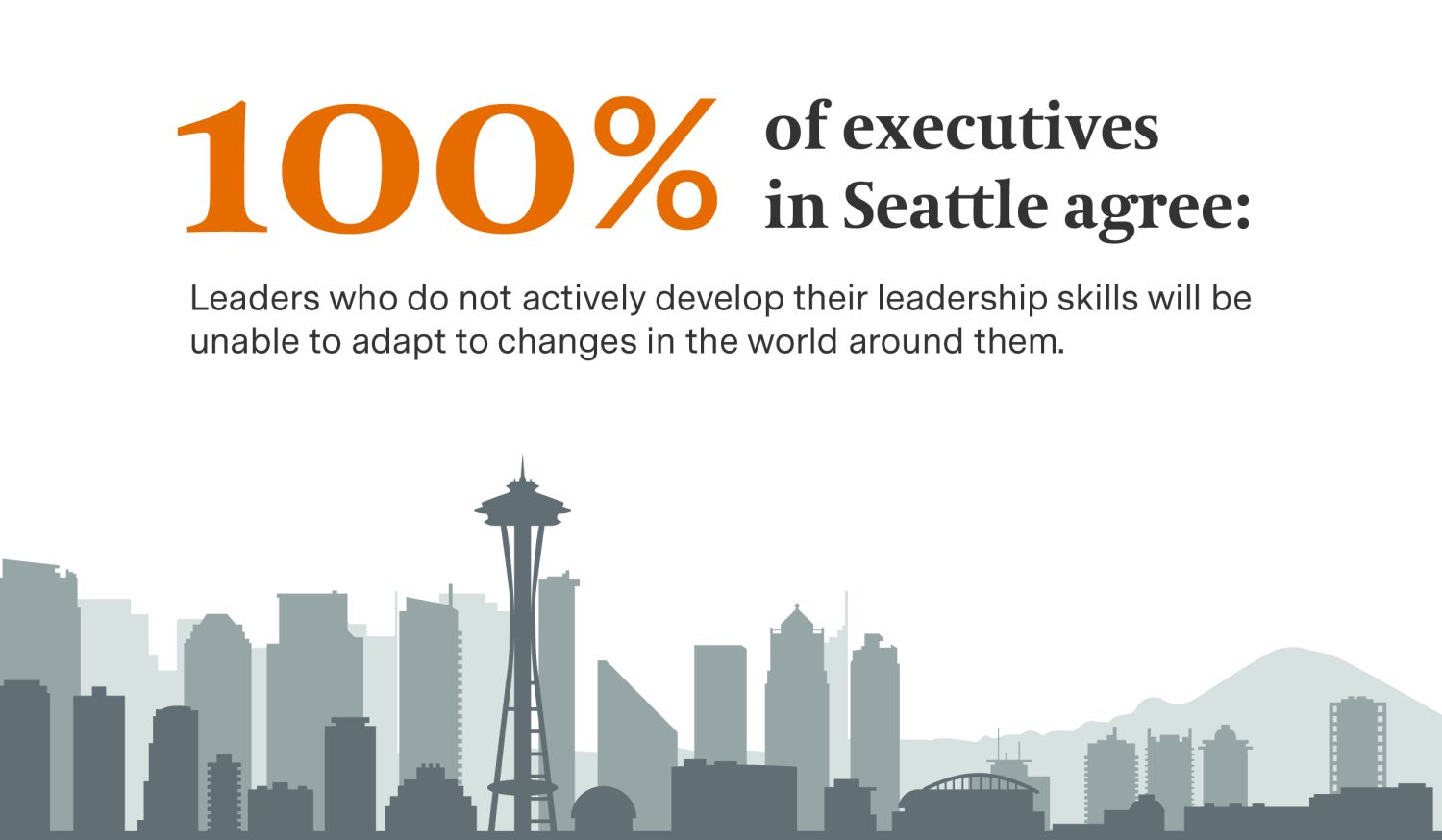In Seattle’s dynamic executive landscape, characterized by performance and innovation, a noteworthy leadership trend is on the rise: leaders are increasingly embracing the human aspect of leadership.
A recent Egon Zehnder survey asked 200 Seattle area executives about the complex issues and leadership challenges they face in their day-to-day roles. The results show that leaders want to focus on the human aspect of leadership—by fostering development and personal growth opportunities for themselves and their teams.
Seattle Leaders’ Wish List
What would executives do if they had the tools, resources and support to perform their role more effectively? Our findings show that Seattle area leaders would dedicate more time to the people side of the business. Specifically, 45% would focus on creating meaningful personal and social connections with colleagues, 42% want to ensure a better work/life balance for employees, and 41% want to mentor and sponsor other employees.

In addition, leaders understand the need to continuously develop a culture that is grounded in humanity, looking out for their employees and supporting them so they can succeed in their roles. They signaled the desire to build and foster a psychologically safe environment for their teams, with 47% intending to encourage open communication, 45% wanting to celebrate professional and personal achievements, and 44% focusing on being more empathetic to colleagues’ problems.
Combatting Loneliness with Trust
Many executives may appear to be extroverted and connected, but the truth is, there is a lingering feeling of loneliness at the top. The pursuit for more development opportunities and better tools to create psychologically safe environments may be deeply related to a major pain point: they are unable to ask for help. Our survey found that more than 2 in 3 executives (67%) haven’t asked for more support to avoid appearing unfit for their roles. For more than a quarter (28%) this has happened multiple times.

The issue may be with trust, as executives want a close friend or sounding board that understands their circumstances. In fact, a confidant is the number one thing executives are looking for to be more successful (43%), followed by more access to leadership development programs (42%), help navigating changes outside the company (40%), and better communication with their teams (37%).
Despite the need for a confidant, companies are not putting mentorship programs in place that could help. While nearly two-thirds of Seattle area executives (64%) have someone they would call a mentor at their company, these are largely informal relationships – less than a quarter (22%) have a mentor formally assigned.
Another critical area of improvement is valuable feedback. Few people can fully appreciate everything executives must consider in their positions, which can result in feedback that is surface level only and lacks insight. According to our data, when executives receive feedback, it often isn’t actionable because it comes from people who do not understand their roles or responsibilities (42%), or it contradicts previous work or practices (41%). Others struggle with too few people providing feedback (37%), the feedback is too specific to be useful (33%) or it doesn’t come in a timely manner (32%).
Self-Guided Development
It is not just mentorship that many executives must line up on their own. Oftentimes companies expect their leaders to pursue self-guided leadership development opportunities rather than through formal programs (46%). Only 55% receive formal leadership development programs from their company, which is a positive trend we expect to keep growing.
Whether self-guided or more prescribed, 100% of the executives we surveyed agreed that leaders who do not actively develop their leadership skills will be unable to adapt to changes in the world around them.

Transforming Leadership in a Vibrant Business Community
Seattle is a vibrant business community, poised for significant future growth. Renowned for its innovation and forward-thinking leadership, the city's 200 surveyed leaders amplify a global trend: Human-centric leadership emerges as the transformative shift within organizations worldwide.
Beyond the veneer of technological and business prowess, Seattle area leaders are driven to foster meaningful connections, combat loneliness with trust, and embark on development journeys. They are aware of the need to feel empowered to confidently steer their organizations toward enduring success and sustainable value. This is grounded in their deep sense of humanity and care for people. To manifest this vision, intentional efforts toward leadership and team development become the critical next step.
Since the opening of our Pacific Northwest office in downtown Seattle this past November, with an upcoming office opening in Vancouver, British Columbia in early 2024, it’s the first time a leadership advisory firm is present with physical offices in both locations. We are captivated by the profound sense of community in this region and eagerly anticipate cultivating lasting relationships with leaders who spearhead innovation, navigate disruptions, build dynamic teams, and beyond.





